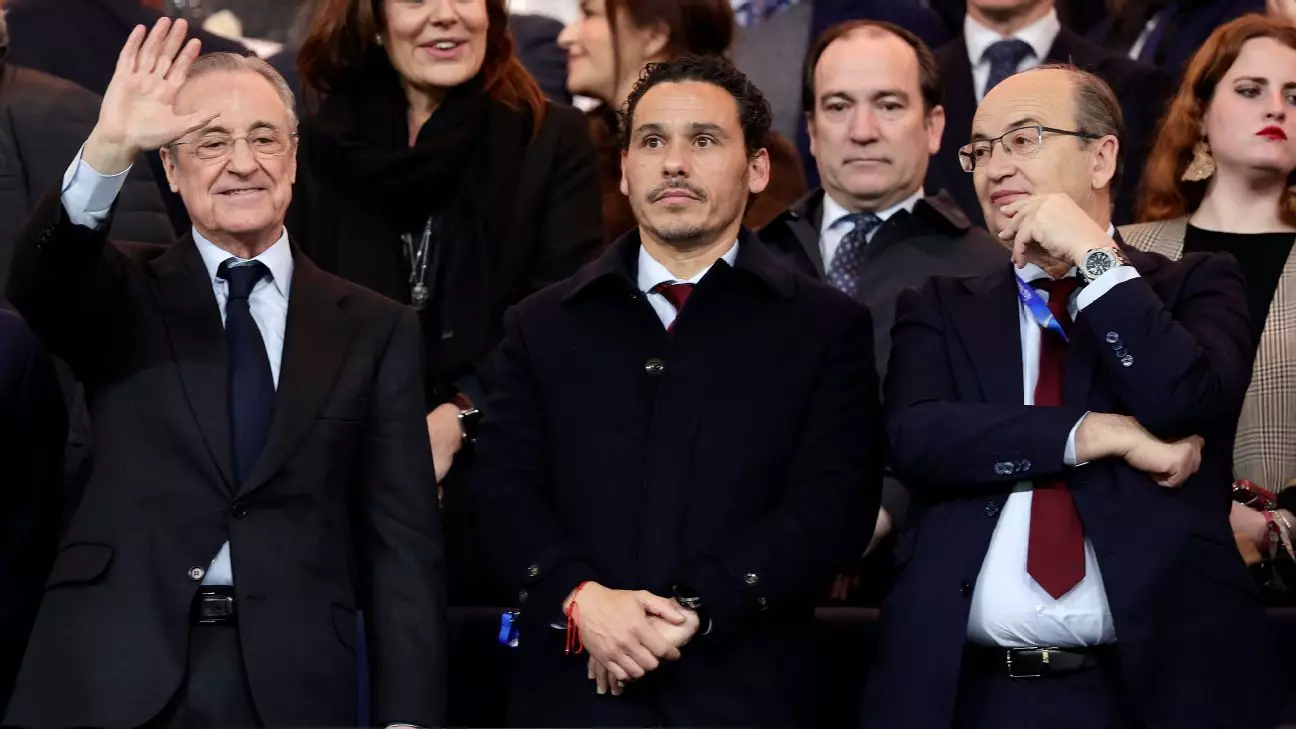The ongoing tensions within Spanish football reached a boiling point this past Sunday when Sevilla’s president, José María del Nido Carrasco, directed scathing criticism towards Real Madrid. Following Madrid’s formal complaints regarding officiating in their LaLiga loss to Espanyol, it became evident that the dispute wasn’t merely about a single game, but rather a broader concern that threatened the integrity of the entire league. Madrid’s grievances stemmed from contentious referee decisions that included a failure to send off Espanyol defender Carlos Romero, who ultimately contributed to his team’s victory by scoring the lone goal.
Del Nido’s statements shed light on an escalating crisis in Spanish football, where the power dynamics between clubs and the refereeing system are increasingly under scrutiny. He noted that Madrid accused the refereeing system of being “totally discredited,” a declaration that not only sparked backlash from other clubs but also implied potential manipulation within the league. Such assertions, deemed “intolerable and unacceptable” by Del Nido, raise serious questions about the foundational principles of fairness and sportsmanship that Spanish football purports to uphold.
The fallout from Madrid’s statements extended beyond typical post-match complaints. The club’s open letter to the Spanish football federation equated the decisions against them to “manipulation and adulteration of the competition.” This language was not only controversial but also indicative of a desperate attempt by Madrid to reshape the narrative surrounding their performances. In response, other clubs rallied together to defend the integrity of the refereeing system, emphasizing the necessity for criticism to be founded on respect for the officials who uphold the game’s standards.
Del Nido emphasized a critical distinction: the need to improve refereeing standards should not descend into alarming declarations that question the honor of officials. Such allegations can have serious repercussions, fostering distrust among fans and players alike while undermining the credibility of the entire Spanish football federation. The president’s perspective served as a clarion call to not only defend referees but also to protect the essence of competition in LaLiga.
Real Madrid’s persistent campaign against perceived injustices has drawn attention not just from within Spain but from the global football community. Del Nido cautioned that this ongoing tirade threatens to “destroy Spanish football,” especially when utilizing club platforms, like Real Madrid TV, to propagate their grievances. The suggestion that a prestigious football club could potentially destabilize the league introduces alarming implications about the responsibilities that come with such a powerful position.
As the LaLiga title race heats up, the disturbances surrounding officiating and club complaints will likely overshadow the thrilling competition on the pitch. With just two points separating the top three teams—Real Madrid, Atlético Madrid, and Barcelona—collateral damage from this dispute could affect fan engagement and undermine the novelty of one of the most watched leagues in the world.
The friction between Real Madrid and Sevilla epitomizes a crucial juncture for Spanish football. As both sides navigate their divergent views on officiating, the broader question persists: how can the league maintain its integrity amidst growing tensions? In the spirit of preserving the game’s honor, it is essential that all stakeholders—including clubs, referees, and fans—collaborate towards a unified approach that protects the essence of football, rooted in fairness and mutual respect.

Leave a Reply